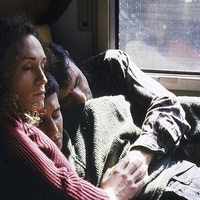Margins of Uncertainty: Caring and Waiting in Transnational Queer Cinema
Lecture by David Caron, University of Michigan
Forms of medical care involve waiting—waiting for people’s condition to improve or worsen, maybe for them to die; waiting in any case for the care to end. Care, like waiting, involves duration (of the caring relationship) and a degree of uncertainty (regarding the outcome). But can caring, usually premised on presence and spatial contiguity, share ethical characteristics with waiting, defined by temporality and the absence of its object? Answers to this question may be found in contemporary queer cinema by directors from different cultural traditions. Among them are Tsai Ming-Liang, Apichatpong Weerasethakul and Sébastien Lifshitz. Strange, slow, and thematically centered on notions of care, their films could have the power to bring strangerliness to their viewers’ sense of self and to present us with ethical modes of cross-cultural connection.Forms of medical care involve waiting—waiting for people’s condition to improve or worsen, maybe for them to die; waiting in any case for the care to end. Care, like waiting, involves duration (of the caring relationship) and a degree of uncertainty (regarding the outcome). But can caring, usually premised on presence and spatial contiguity, share ethical characteristics with waiting, defined by temporality and the absence of its object? Answers to this question may be found in contemporary queer cinema by directors from different cultural traditions. Among them are Tsai Ming-Liang, Apichatpong Weerasethakul and Sébastien Lifshitz. Strange, slow, and thematically centered on notions of care, their films could have the power to bring strangerliness to their viewers’ sense of self and to present us with ethical modes of cross-cultural connection.
